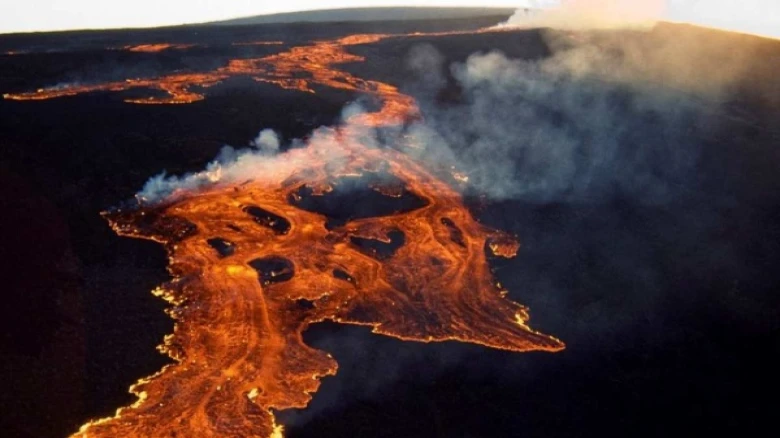Kilauea, a minor volcano on Mauna Loa's southeast flank, has been erupting since September 2021, according to the US Geological Survey...
Digital Desk: Mauna Loa, the world's largest active volcano, erupted for the first time since 1984 on Sunday, breaking its longest stretch of silence recorded in history. Kilauea, its adjacent volcano, has been erupting for more than a year.
According to a Facebook post from Hawaii Volcanoes National Park, the unique dual-eruption event is expected to attract a vast number of people anxious to observe their lava flows.
Despite being only 21 miles apart, the two volcanoes have not erupted at the same time since Mauna Loa's last eruption in 1984, according to CNN. Both are not now a threat to local houses or infrastructure, according to the park, but state health experts have warned about possible implications on air quality.
According to the US Geological Survey, most of the eruption is currently taking place in Mauna Loa's Northeast Rift Zone, where lava is gushing from at least one volcanic break. According to the agency, volcanic gas, fine ash, and Pele's Hair, which are strands of volcanic glass, might be carried downwind.
"Based on prior eruptions," the geological survey noted in a recent statement, "the early phases of a Mauna Loa rift zone eruption can be quite dynamic, and the location and progress of lava flows can alter fast." Kilauea, a minor volcano on Mauna Loa's southeast slope, has been erupting since September 2021, and according to The Geological Survey, although its lava has been restricted to its crater. As said by CNN report, when the very active volcano erupted for months in Leilani Estates in 2018, it damaged over 700 houses and displaced people.
At the moment, no eruption poses a threat to houses or infrastructure. The Hawaii Volcanoes National park reported that "Kilauea has been erupting since September 29, 2021, with lava confined to the top lava lake."
"Hawaii Volcanoes National Park is keeping a careful eye on Mauna Loa alongside our colleagues at the US Geological Survey and Hawaii County Civil Defense," stated Rhonda Loh, Superintendent of Hawaii Volcanoes National Park, in a release. "The park is currently open," she noted, "but visitors should be prepared and stay informed."

Leave A Comment